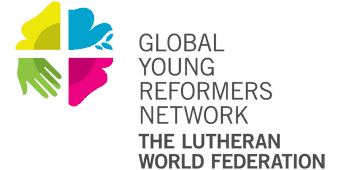Setting priorities for Lutheran youth worldwide

A personal impression from the youth pre-assembly, by Collins Shava
Collins Shava from the Evangelical Lutheran Church in Zimbabwe is a youth delegate and serves as a steward at the Twelfth LWF Assembly. In this text, he shares his experience from the youth pre-assembly and the development of the youth priorities for the next seven years.
The second day of the youth pre-assembly was an important day for me. Important in the sense that we as youth had the opportunity to decide and vote for LWF youth priorities in 2018-2023.
As a fairly new participant to an LWF meeting, I felt the passion, honour and the responsibility to decide priorities on behalf of so many Lutheran youths across the globe. The session was in afternoon, I even thought it would not be interesting as young people would have become tired and exhausted. I was amazed with the energy we had and the passion we had when the time came.
The open space session was divided into five parts: introduction, gathering ideas, market place, discussion and voting.
We started by going around the room to place ideas at various blank flipcharts. Some of them had messages coming from regional pre-assemblies. As I moved around placing my ideas to the flip charts, I felt a lot more ideas were coming into my mind by just being in the presence of other young people. I placed my comments, my ideas and my priorities, without fear nor favour, I never felt afraid to speak up. We clearly wrote what we felt and we showed support on issues in which we shared similar interest. After the random gathering of ideas, we decided which issues were similar to each other.
During the market place, we discussed our ideas. Now we were using the “law of the two feet”, where one would only stop at issues of particular interest. I was amazed by the discussion and how we listened to each other’s opinions even though you wouldn’t always agree with them. I listened critically. This boosted my confidence before the voting process.
The voting processes was interesting with each voting member having three stickers to put on issues of interest. We had two rounds of voting, at first we had 17 priorities, were left with 5, and out of the 5 we were left with 3. During the process I got sad when one of the priorities I had favored was not voted for despite my passion, but I comforted myself with the knowledge that the final result represented the voice of us as the youth from all around the world. This was an important session, I learnt a lot from this.
Collins Shava, Evangelical Lutheran Church in Zimbabwe, Steward.
